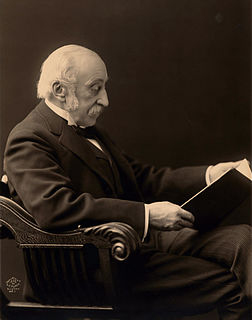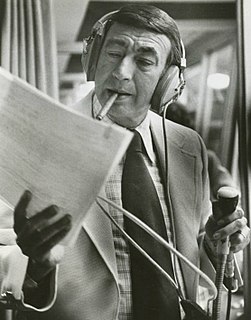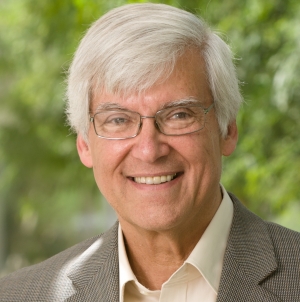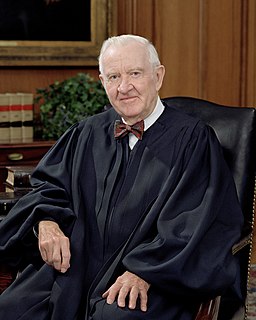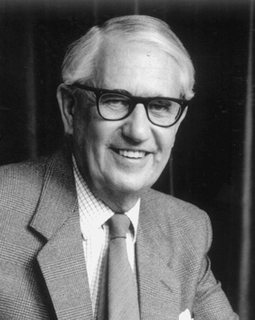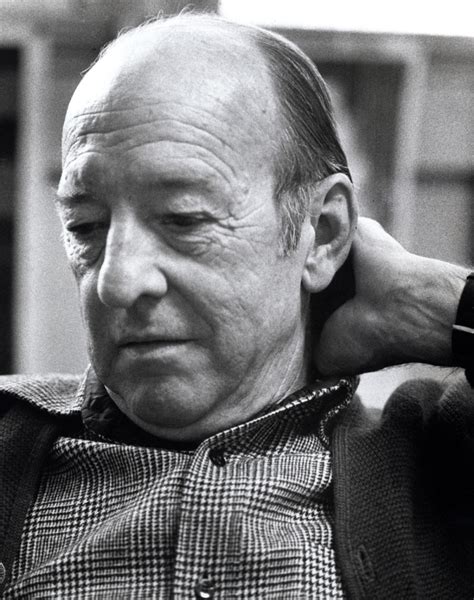Top 736 Franklin Delano Roosevelt Quotes & Sayings - Page 12
Explore popular Franklin Delano Roosevelt quotes.
Last updated on December 2, 2024.
Which is more worthwhile earning: a large fortune or the esteem and gratitude of the nation? This question is prompted anew by the death of ex-Secretary of the Interior [Franklin K.] Lane. He remained in public service, doing most noble work, until his means became absolutely exhausted, and he died before having had the opportunity to reaccumulate any bank account.... He died leaving no estate whatsoever. Is what he did leave more to be desired, more to be coveted, than a fortune reaching into six or seven figures?
I think FDR was very dashing and charming and debonair, and probably reminded her of her father. A great bon-vivant. He loved to party. He loved to sing. He loved to have fun. And he wrote beautiful letters, just as her father did, which - alas and alack - Eleanor Roosevelt destroyed. But she refers to his beautiful letters. And she was charmed by him.
People try so hard to believe in leaders now, pitifully hard. But we no sooner get a popular reformer or politician or soldier or writer or philosopher -- a Roosevelt, a Tolstoi, a Wood, a Shaw, a Nietzsche, than the cross-currents of criticism wash him away. My Lord, no man can stand prominence these days. It's the surest path to obscurity. People get sick of hearing the same name over and over.
That was a general impression that one got, that she [Eleanor Roosevelt] was always flitting around the country and descending on some place in the Ozarks that she decided was disadvantaged, and announcing that something had to be done. And she had a very active social conscience, which I think in general is to her credit, although it tended, as many people thought, to just be overdone to the point where it gave rise to this crack that she regarded the whole world as one vast slum project
An American leader would be derelict of duty if he did not seek to understand all his options in such unprecedented circumstances. Presidents Lincoln during the Civil War and Roosevelt in the lead-up to World War II sought legal advice about the outer bounds of their power - even if they did not always use it. Our leaders should ask legal questions first, before setting policy or making decisions in a fog of uncertainty.
What was really great with Eleanor Roosevelt - I mean, of course, we all have this stereotypical, really satirical almost, version of how she speaks. What was really interesting to me was I found various radio and TV appearances of hers, but there was one talk show that I saw her on; she was the only woman, it was all men. They were talking about policy - I think it was after she was First Lady. I think it was more in the U.N. days.
I know some say, let us have good laws, and no matter for the men that execute them: but let them consider, that though good laws do well, good men do better: for good laws may want good men, and be abolished or evaded [invaded in Franklin's print] by ill men; but good men will never want good laws, nor suffer ill ones.
I think there will be some people who think I did a great job, some people who will think, 'Hey, for a guy who did this for his first time, he didn't do too bad,' and some people will be like, 'Rich Franklin sucks.' It doesn't matter what you do, you will always have people on every side of that spectrum, so I would imagine for me it wouldn't be any different.
The problem was that Panama technically belonged to Colombia, which refused to sign a treaty leasing it to the United States. So Roosevelt sent a gunboat filled with marines down to Panama, just on the off chance that a revolution might suddenly break out, and darned if one didn't, two days later. Not only that, but the leaders of the new nation of Panama-talk about lucky breaks!-were absolutely thrilled to have the United States build a canal there. 'Really, it's our pleasure,' they told the marines, adding, 'Don't shoot.'
I was with Miles Davisfor a couple of years as his bass player, and it was a beautiful experience. After two years I said to him, "Listen, man, I want to leave your band." He goes, "Why?" I said, "Because I want to develop not just as a bass player, but I want to get more into composition, into producing, and I'm working with Aretha Franklin and Luther Vandross and all these guys, and I want to really see how much I can grow and develop." He actually gave me his blessing.
When you have three out of the four largest banks in America today, bigger than they were - significantly bigger than when we bailed them out because they were too big to fail, I think if Teddy Roosevelt were alive today, a good Republican by the way, what he would say is: Break them up; they are too powerful economically; they are too powerful politically.
The scientists from Franklin to Morse were clear thinkers and did not produce erroneous theories. The scientists of today think deeply instead of clearly. One must be sane to think clearly, but one can think deeply and be quite insane. Today's scientists have substituted mathematics for experiments, and they wander off through equation after equation, and eventually build a structure which has no relation to reality.
I'm very glad my mother didn't let me quit piano lessons at age 10. She said I wasn't old enough or good enough to make that decision, and she was right. I remember at the time I was shocked. I did not like that my mother said those things to me. But when I got a chance to play with Yo-Yo Ma or more recently with Aretha Franklin, I thought, I'm really glad she said what she did.
By 1938, Eleanor Roosevelt was so angry at FDR's policies, she writes a book called This Troubled World. And it is actually a point-by-point rebuttal of her husband's foreign policy. We need collective security. We need a World Court. We need something like the League of Nations. We need to work together to fight fascism. We need embargoes against aggressor nations, and we need to name aggressor nations. All of which is a direct contradiction of FDR's policies.
There never was a good war," said Franklin. "There have indeed been many wars in which a good man must take part, and take part with grave gladness to die if need be, a willing sacrifice, thankful to give life for what is dearer than life, and happy that even by death in war he is serving the cause of peace. But if a war be undertaken for the most righteous end, before the resources of peace have been tried and proved vain to secure it, that war has no defense, it is a national crime.
An unspeakable tragedy, confirmed to us by ABC News in New York City: John Lennon, outside of his apartment building on the West Side of New York City, the most famous, perhaps, of all the Beatles, shot twice in the back, rushed to Roosevelt Hospital, dead on arrival. Hard to go back to the game after that news flash, which in duty bound, we have to take.
To picture Roosevelt as a man at this time in his life - he felt he was old. He was 53 years old, feeling lonely and irrelevant. And all of a sudden, he takes on this campaign, and it becomes a crusade for popular government. And he ultimately goes on fire in the campaign, but he discovers he's up against all the old machine tactics that he used to use himself, and he has to let the public get involved. And he energizes the public through the most extreme kind of rhetoric, which truly brings him into the streets and onto his side.
We believe there should be a huge area between everything you should do and everything you can do without getting into legal trouble. I don't think you should come anywhere near that line. We don't deserve much credit for this. It helps us make more money. I'd like to believe that we'd behave well even if it didn't work. But more often, we've made extra money from doing the right thing. Ben Franklin said I'm not moral because of it's the right thing to do - but because it's the best policy.
She really is a completely different First Lady. Eleanor Roosevelt was not going to suffer and withdraw in the White House. And I think he's a very different President. He does not want his wife to suffer and withdraw in the White House. And they really are partners. They're partners in a big house where there are two separate courts, and they both know they have two separate courts. But these are courts that are allied in purpose, united in vision.
It is only possible to succeed at second-rate pursuits - like becoming a millionaire or a prime minister, winning a war, seducing beautiful women, flying through the stratosphere, or landing on the moon. First-rate pursuits - involving, as they must, trying to understand what life is about and trying to convey that understanding - inevitably result in a sense of failure. A Napoleon, a Churchill, or a Roosevelt can feel himself to be successful, but never a Socrates, a Pascal, or a Blake. Understanding is forever unattainable.
But it's also the beginning of another level of liberation for her]Eleanor Roosevelt], because when she returns to New York, she gets very involved in a new level of politics. She meets Esther Lape and Elizabeth Read, and becomes very involved in the women's movement, and then in the peace movement. And ironically, the years of her greatest despair become also the years of her great liberation.
A lot of people say that Eleanor Roosevelt wasn't a good mother. And there are two pieces to that story. One is, when they were very young, she was not a good mother. She was an unhappy mother. She was an unhappy wife. She had never known what it was to be a good mother. She didn't have a good mother of her own. And so there's a kind of parenting that doesn't happen.
What is a war criminal? Was not war itself a crime against God and humanity, and, therefore, were not all those who sanctioned, engineered, and conducted wars, war criminals? War criminals are not confined to the Axis Powers alone. Roosevelt and Churchill are no less war criminals than Hitler and Mussolini. England, America and Russia have all of them got their hands dyed more or less red - not merely Germany and Japan.
Puns are little "plays on words" that a certain breed of person loves to spring on you and then look at you in a certain self-satisfied way to indicate that he thinks that you must think that he is by far the cleverest person on Earth now that Benjamin Franklin is dead, when in fact what you are thinking is that if this person ever ends up in a lifeboat, the other passengers will hurl him overboard by the end of the first day even if they have plenty of food and water.
It is impossible not to feel stirred at the thought of the emotions of man at certain historic moments of adventure and discovery - Columbus when he first saw the Western shore, Pizarro when he stared at the Pacific Ocean, Franklin when the electric spark came from the string of his kite, Galileo when he first turned his telescope to the heavens. Such moments are also granted to students in the abstract regions of thought, and high among them must be placed the morning when Descartes lay in bed and invented the method of co-ordinate geometry.
I want to take my American friends back to the end of World War II, when the Universal Declaration of Human Rights was formulated. A group of thinkers met to come up with ways and means to prevent yet another war. Mrs. Eleanor Roosevelt played a crucial role in assembling this group of people. And that is why the name of the United States is synonymous with the cause of human rights around the world.
There are many ways to be influential. You can work for politicians or in government and make a difference. And for young women who are interested in running for office, you just have to decide you're going to follow Eleanor Roosevelt's maxim about growing skin as thick as the hide of a rhinoceros, and you have to be incredibly well-prepared - better prepared [than a man], actually - and you have to figure out how you're going to present yourself, and you have to have a support group around you, because it can be really a brutal experience.
So in 1924, Eleanor Roosevelt really gets a sense of what the limits of the battle and the contours of the battle are going to be. The men are contemptuous of the women, and the women really need to organize. She writes an article which becomes an article she writes in different ways over and over and over again: Women need to organize. They need to create their own bosses. They need to have support networks and gangs so that they are a force.
And during the campaign of 1936, she writes that she and her brother would always rather be out doing things when they're sick, rather than take to their beds. And I think Eleanor Roosevelt always responded to pain by doing more, by doing something, by being active. And I think she just couldn't bear to look at her childhood grief. And she didn't.
At bottom, the Court's opinion is thus a rejection of the common sense of the American people, who have recognized a need to prevent corporations from undermining self-government since the founding, and who have fought against the distinctive corrupting potential of corporate electioneering since the days of Theodore Roosevelt. It is a strange time to repudiate that common sense. While American democracy is imperfect, few outside the majority of this court would have thought its flaws included a dearth of corporate money in politics.
I often ask myself: "What would Theodore Roosevelt do?" One can never know, of course. The ultimate contribution of consequential leaders is often their capacity to reframe issues in novel ways. That said, his leadership engaged, at a foundational level, whether the American "national character" would accept decline and mediocrity, or would go all-in for leadership and excellence. Amid the myriad of otherwise disconnected issues before us, that choice is emerging yet again.
I think the fact that she [Eleanor Roosevelt] was a woman probably in those days would have been an additional criticism, although first ladies by definition in those days were women. There's always been a problem and still is, about the role the first lady should play, of course. Everybody's seen it in Jackie Kennedy and Nancy Reagan and, heaven knows, Hillary Clinton. So the problem has not been solved.
I think her Grandmother Hall gave her a great sense of family love, and reassurance. Her grandmother did love her, like her father, unconditionally. And despite the order and the discipline - and home at certain hours and out at certain hours and reading at certain hours - there was a surprising amount of freedom. Eleanor Roosevelt talks about how the happiest moments of her days were when she would take a book out of the library, which wasn't censored.
As a writer, politician, scientist, and businessman, [Ben] Franklin had few equals among the educated of his day-though he left school at ten. (...)Boys like Andrew Carnegie who begged his mother not to send him to school and was well on his way to immortality and fortune at the age of thirteen, would be referred today for psychological counseling; Thomas Edison would find himself in Special Ed until his peculiar genius had been sufficiently tamed.
Churchmen are quick to defend religious freedom; lawyers were never so universally aroused as by President Roosevelt's Court bill; newspapers are most alert to civil liberties when there is a hint of press censorship in the air. And educators become perturbed at every effort to curb academic freedom. But too seldom do all of these become militant when ostensibly the rights of only one group are threatened. They do not always react to the truism that when the rights of any individual or group are chipped away, the freedom of all erodes.
I received a most amusing postcard the other morning. Unfortunately, it was not signed in a readable manner so I cannot answer it privately. But it comes from Moblie, Ala., and says: 'Dear Mrs. Roosevelt: You have not answered my question, the amount of Negro blood you have in your veins, if any.' I am afraid none of us know how much nor what kind of blood we have in our veins, since chemically it is all the same. And most of us cannot trace our ancestry more than a few generations.
Here's another way of putting it. Roosevelt wants recovery to start at the bottom. In other words, by a system of high taxes, he wants business to help the little fellow to get started and get some work, and then pay business back by buying things when he's at work. Business says, 'Let everybody alone. Let business alone, and quit monkeying with us, and we'll get everything going for you, and if we prosper, naturally the worker will prosper.'
You've probably heard about the theory of steam-engine time - that even after the steam engine had been invented, it had to wait until people were ready to make use of it. The same thing happens in literary circles. The truth is, I'm not terribly interested in Victorian times; I'm interested in Victorian writers. I'm interested in most eras of history, but not the Victorian Era especially. I was interested in the John Franklin Expedition. I was interested in these last five weird years of Dickens' life. And I just have to take the age that comes with all that when I write about it.
I think Eleanor Roosevelt always had a most incredible comfort writing letters. I mean, she was in the habit of writing letters. And that's where she allowed her fantasies to flourish. That's where she allowed her emotions to really evolve. And that's where she allowed herself to express herself really fully, and sometimes whimsically, very often romantically. And it really starts with her letters to her father, who is lifelong her primary love.
Roosevelt could always keep ahead with his work, but I cannot do it, and I know it is a grievous fault, but it is too late to remedy it. The country must take me as it found me. Wasn't it your mother who had a servant girl who said it was no use for her to try to hurry, that she was a "Sunday chil" and no "Sunday chil" could hurry? I don't think I am a Sunday child, but I ought to have been; then I would have had an excuse for always being late.
"We hold these truths to be sacred and undeniable" in a draft of the Declaration of Independence changes it instead into an assertion of rationality. The scientific mind of Franklin drew on the scientific determinism of Isaac Newton and the analytic empiricism of David Hume and Gottfried Leibniz. In what became known as "Hume's Fork" the latters' theory distinguished between synthetic truths that describe matters of fact, and analytic truths that are self-evident by virtue of reason and definition.
President Roosevelt and President Truman and President Eisenhower had the same experience, they all made the effort to get along with the Russians. But every time, finally it failed. And the reason it failed was because the Communists are determined to destroy us, and regardless of what hand of friendship we may hold out or what arguments we may put up, the only thing that will make that decisive difference is the strength of the United States.
I think the important thing to remember about the Japanese internment is the situation. We had been attacked. Maybe Roosevelt expected it - I rather think he did. I don't think he expected an attack on Pearl Harbor. I think he expected an attack on Southeast Asia. But we were attacked at Pearl Harbor
Tentatively I stood a great lump of wood on the chopping block and bought the axe down on it. It flew into two perfect halves. Such was my elation that I ran inside, put on our ancient cracked record of Aretha Franklin singing Respect and danced all by myself for half an hour in our living room, without inhibition, almost crying with jubilation – not just about the wood, but because I could live competently some of the time, and because that day I liked myself.
Well, the reality of her father was that he was a very diseased alcoholic, who died at the age of 34. And one always has to pause to wonder how much you have to drink to die at 34. And he was a really tragic father. I mean, he was absolutely unreliable. He was absolutely involved with various people. He had outside families, outside children, outside wives. He made his wife's life miserable. And she [Eleanor Roosevelt]ignored all of his faults and retained this sense of him as the perfect father.
I think that Eleanor Roosevelt really learned about the limits of power and influence from Arthurdale. She could not make some things happen. And she particularly learned that she could not, just because she was nominally in charge, she could not change people's hearts and minds; that a very long process of education would result before race was on the national agenda. And it really did move her into the racial justice arena with both feet. She came out fighting.
And in the same way, FDR's not much of a father. Although the children in all their memoirs really talk about what a fun-loving guy Dad was, and how brooding and unhappy Mom was. The children sort of blame it all on the mother. Well, this is kind of standard and typical, and aggrieved Eleanor Roosevelt that she was not a happier mother. She wanted to be a happier mother. And I must say, she was a happier grandmother.
The British have their own conception of what constitutes the typical American. He must have a flavor of the Wild West about him. He must do spectacular things. He must not be punctilious about dignity, decorum and other refinements characteristic of the real British gentleman. The Yankee pictured by the Briton must be a bustler. If he is occasionally flagrantly indiscreet in speech and action, then he is so much more surely stamped the genuine article. The most typical American the British ever set their eyes on was, in their judgment, Theodore Roosevelt.
Of the six men who have done most to make America the wonder and the joy she is to all of us, not one could be the citizen of a government so constituted; for Washington and Franklin and Jefferson, certainly the three mightiest leaders in our early history, were heretics in their day, Deists, as men called them; and Garrison and Lincoln and Sumner, certainly the three mightiest in these later times, would all be disfranchised by the proposed amendment. Lincoln could not have taken the oath of office had such a clause been in the Constitution.
This national argument is usually interpreted as a battle between imperialists led by Roosevelt and Lodge and anti-imperialists led by William Jennings Bryan and Carl Schurz. It is far more accurate and illuminating however, to view it as a three-cornered fight. The third group was a coalition of businessmen, intellectuals, and politicians who opposed traditional colonialism and advocated instead a policy of an open door through which America's preponderant economic strength would enter and dominate all underdeveloped areas of the world.
People who thought that she was busy going around trying to stir up difficulty where there was none or less than she imagined, were quite critical of her. She was, we must never forget, a public figure. And in democracies, public figures tend to attract criticism as well as praise. The most dangerous thing would be if anybody were regarded as above criticism. And Eleanor Roosevelt is, in recent years, getting there.
Holocausts do not amaze me. Rapes and child slavery do not amaze me. And Franklin, I know you feel otherwise, but Kevin does not amaze me. I am amazed when I drop a glove in the street and a teenager runs two blocks to return it. I am amazed when a checkout girl flashes me a wide smile with my change, though my own face had been a mask of expedience. Lost wallets posted to their owners, strangers who furnish meticulous directions, neighbors who water each other's houseplants - these things amaze me.
You CAN NOT judge previous generations by today's standards. Today Mark Twain is called by many, a racist. By the standards of his time, he was a social liberal. Even Teddy Roosevelt was a social liberal at the time, but he accepted as fact that idea that Caucasians were inherently superior to all other races. That makes him a racist in the CORRECT definition of the term.
And of course, FDR was very charming. At 6'2", he was tall enough to be her beau, and they made a beautiful couple. And she could encourage him. His mother also encouraged him. So this notion of a woman with ideas of her own and a spirit of her own and a style of her own was very congenial to Franklin. And he loved her. And their romance was a very dear and true and deep romance.
There are many influences in my music, not only blues. R&B, Motown, gospel, old timey, jazz, even classical are all part of what I do. I started with classical, then country, then blues, and after that I started listening heavily to Motown and gospel. My earliest efforts as a songwriter were soul. Aretha Franklin, Curtis Mayfield, Wilson Pickett, Gladys Knight, James Brown, Otis Redding, Marvin Gaye and Fontella Bass are just a few of the names that come to mind as the God's of soul and Motown.
To finish building the free society dreamed of by Washington, Franklin, and Jefferson, we must draw upon the resources of the enlightened imagination, which can be systematically developed by the spiritual sciences of India and Tibet. We have not yet tamed our own demons of racism, nationalism, sexism, and materialism. We have not yet made peace with a land we took by force and have only partly paid for. We are a teeming conglomeration of people from different tribes who have yet to embrace fully the humanness in one another. And none of us can be really free until all of us are.
Her [Eleanor Roosevelt] father was the love of her life. Her father always made her feel wanted, made her feel loved, where her mother made her feel, you know, unloved, judged harshly, never up to par. And she was her father's favorite, and her mother's unfavorite. So her father was the man that she went to for comfort in her imaginings.













